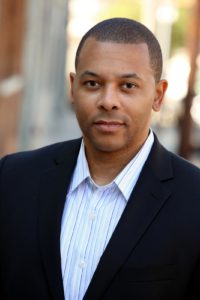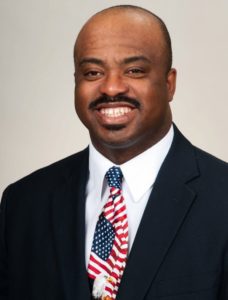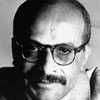06 Mar 2015 Black Conservatives Comment on Selma “Bloody Sunday” 50th Anniversary
Washington, D.C. – March 7 is the 50th anniversary of “Bloody Sunday,” when civil rights activists were attacked by Alabama law enforcement as they tried to cross the Edmund Pettus Bridge in Selma at the beginning of a march to the state capitol. Members of the Project 21 black leadership network are commenting on this civil rights milestone that brought increased national attention to the civil rights cause and helped to secure voting rights protections.
Noting the great strides forward that have been made in the promotion of civil rights for all, Project 21 members cautioned against using the solemn remembrance of events in Selma to incite harmful racial animosity.
 “In the 50 years since Bloody Sunday, blacks went from suffering under legalized racial segregation to celebrating the election and reelection of the nation’s first black president. Blacks now head major corporations and are among our nation’s most admired citizens. That was entirely inconceivable back then,” said Project 21’s Derryck Green, a doctoral candidate in ministerial studies. “But those who now maintain a black grievance industry — the bastard child of the civil rights movement — want to make others think America is still like the Selma of decades ago. In doing so, they trivialize how our nation has matured. Racial disparities remain, but many of these pains are self-inflicted on a few while society as a whole enjoys social, economic and political benefits that those who suffered on Bloody Sunday could only imagine experiencing back then.”
“In the 50 years since Bloody Sunday, blacks went from suffering under legalized racial segregation to celebrating the election and reelection of the nation’s first black president. Blacks now head major corporations and are among our nation’s most admired citizens. That was entirely inconceivable back then,” said Project 21’s Derryck Green, a doctoral candidate in ministerial studies. “But those who now maintain a black grievance industry — the bastard child of the civil rights movement — want to make others think America is still like the Selma of decades ago. In doing so, they trivialize how our nation has matured. Racial disparities remain, but many of these pains are self-inflicted on a few while society as a whole enjoys social, economic and political benefits that those who suffered on Bloody Sunday could only imagine experiencing back then.”
 “Black historian John Henrick Clarke said ‘history is a clock that people use to tell their political and cultural time of day.’ In Selma, the struggle for civil rights prevailed because people of all races came together to show self-determination, integrity, courage and strength in overcoming segregation and institutionalized racism,” said Project 21’s Stacy Swimp, an Apostolic minister and founder of the National Christian Leadership Council. “We need to remember this spirit and history as we check the time. We need to realize there are no permanent boundaries around us we do no place around ourselves. I am confident our predecessors would not appreciate it if we internalized their experiences as if they were our own. We cannot use their pain and sacrifice as an excuse to hate others, accept low standards among ourselves and refuse to commit to the advancement of American exceptionalism. That’s not what they wanted. We shouldn’t want it either.”
“Black historian John Henrick Clarke said ‘history is a clock that people use to tell their political and cultural time of day.’ In Selma, the struggle for civil rights prevailed because people of all races came together to show self-determination, integrity, courage and strength in overcoming segregation and institutionalized racism,” said Project 21’s Stacy Swimp, an Apostolic minister and founder of the National Christian Leadership Council. “We need to remember this spirit and history as we check the time. We need to realize there are no permanent boundaries around us we do no place around ourselves. I am confident our predecessors would not appreciate it if we internalized their experiences as if they were our own. We cannot use their pain and sacrifice as an excuse to hate others, accept low standards among ourselves and refuse to commit to the advancement of American exceptionalism. That’s not what they wanted. We shouldn’t want it either.”
 “It’s often been said that the accomplishments of any black American are made by standing on the shoulders of those who came before them. In the face of violence, degradation and inhumane treatment, those who marched in Selma 50 yeas ago did so for a long overdue cause. The march was a tide that truly raised all ships,” said Project 21 member Bishop Council Nedd II, the rector of St. Alban’s Anglican Church, State College, PA. “We cannot now go back to racial exclusivity. I don’t see the events of Selma as an exclusively ‘black’ event. Black Americans certainly gained the most from what transpired, but Americans of all walks of life stood together for what was necessary and right. Everyone cried out for equality. Everyone deserves equality. Yet we now live in a moment in time when people demand that ‘black lives matter.’ They do, but not more so than the innocent unborn or the persecuted Christians dying for their faith. At the end of the day, all lives matter.”
“It’s often been said that the accomplishments of any black American are made by standing on the shoulders of those who came before them. In the face of violence, degradation and inhumane treatment, those who marched in Selma 50 yeas ago did so for a long overdue cause. The march was a tide that truly raised all ships,” said Project 21 member Bishop Council Nedd II, the rector of St. Alban’s Anglican Church, State College, PA. “We cannot now go back to racial exclusivity. I don’t see the events of Selma as an exclusively ‘black’ event. Black Americans certainly gained the most from what transpired, but Americans of all walks of life stood together for what was necessary and right. Everyone cried out for equality. Everyone deserves equality. Yet we now live in a moment in time when people demand that ‘black lives matter.’ They do, but not more so than the innocent unborn or the persecuted Christians dying for their faith. At the end of the day, all lives matter.”
 “Fifty years ago, this nation’s civil rights movement staged three marches for voting rights from Selma to Montgomery, Alabama. They resulted in the historic Voting Rights Act of 1965. Racism, violence and discrimination were omnipresent in the lives of all too many black Americans — something that hardly required the flights of fantasies or fertile imaginations driving today’s protests and marches,” said Project 21’s Joe R. Hicks, a former executive director of the Southern Christian Leadership Conference of Greater Los Angeles. “In contrast to those who marched at Selma for realistic goals and objectives back then, those claiming to be today’s civil rights leaders make handsome livings from specious claims that America still has ‘so much farther to go’ in the struggle against racism. Unlike Dr. King and other civil rights greats, this new leadership spends most of its time looking in the historical rearview mirror. It’s something that blinds them, perhaps opportunistically, to the amazing pace of progress that’s occurred since the awful violence of ‘Bloody Sunday.’ Mired in racial mythology, these leaders and activists insultingly argue black lives don’t seem to matter in today’s society and that racist cops have declared open season on black youth. Drawn to the glow of TV cameras and political grandstanding, this bankrupt leadership turns away from the hard work of redeeming communities in preference to the cheap and easy lobbing of empty charges against white America. Yet the fact is, 50 years after Selma, Birmingham and Montgomery, and after the civil rights victories of the 1964 Civil Rights Act and 1965 Voting Rights Act, a once-oppressed people can hardly be described in that manner.”
“Fifty years ago, this nation’s civil rights movement staged three marches for voting rights from Selma to Montgomery, Alabama. They resulted in the historic Voting Rights Act of 1965. Racism, violence and discrimination were omnipresent in the lives of all too many black Americans — something that hardly required the flights of fantasies or fertile imaginations driving today’s protests and marches,” said Project 21’s Joe R. Hicks, a former executive director of the Southern Christian Leadership Conference of Greater Los Angeles. “In contrast to those who marched at Selma for realistic goals and objectives back then, those claiming to be today’s civil rights leaders make handsome livings from specious claims that America still has ‘so much farther to go’ in the struggle against racism. Unlike Dr. King and other civil rights greats, this new leadership spends most of its time looking in the historical rearview mirror. It’s something that blinds them, perhaps opportunistically, to the amazing pace of progress that’s occurred since the awful violence of ‘Bloody Sunday.’ Mired in racial mythology, these leaders and activists insultingly argue black lives don’t seem to matter in today’s society and that racist cops have declared open season on black youth. Drawn to the glow of TV cameras and political grandstanding, this bankrupt leadership turns away from the hard work of redeeming communities in preference to the cheap and easy lobbing of empty charges against white America. Yet the fact is, 50 years after Selma, Birmingham and Montgomery, and after the civil rights victories of the 1964 Civil Rights Act and 1965 Voting Rights Act, a once-oppressed people can hardly be described in that manner.”
Project 21 members were interviewed or cited by the media over 2,000 times in 2014, and have been over 300 times so far in 2015. Outlets calling on Project 21 for comment have included Fox News Channel, MSNBC, TVOne, the Philadelphia Inquirer, One America News Network, the Orlando Sentinel, Westwood One, St. Louis Post-Dispatch, SiriusXM satellite radio, WHO-Des Moines, KOA-Denver, WGN-Chicago, WBZ-Boston, KDKA-Pittsburgh and many more. Topics discussed have included civil rights, entitlement programs, the economy, voter ID, race preferences, education, illegal immigration and corporate social responsibility. Project 21 members also have provided substantial commentary regarding the Trayvon Martin, Michael Brown and Eric Garner judicial proceedings, and the organization is currently involved in two cases before the U.S. Supreme Court. Project 21 also defended voter ID laws at the United Nations. Its volunteer members come from all walks of life and are not salaried political professionals.
Project 21, a leading voice of black conservatives for over two decades, is sponsored by the National Center for Public Policy Research (https://nationalcenter.org). Tax-deductible donations are appreciated and can be made online here. The press and public are invited to sign up for Project 21 news alerts here.
-30-



